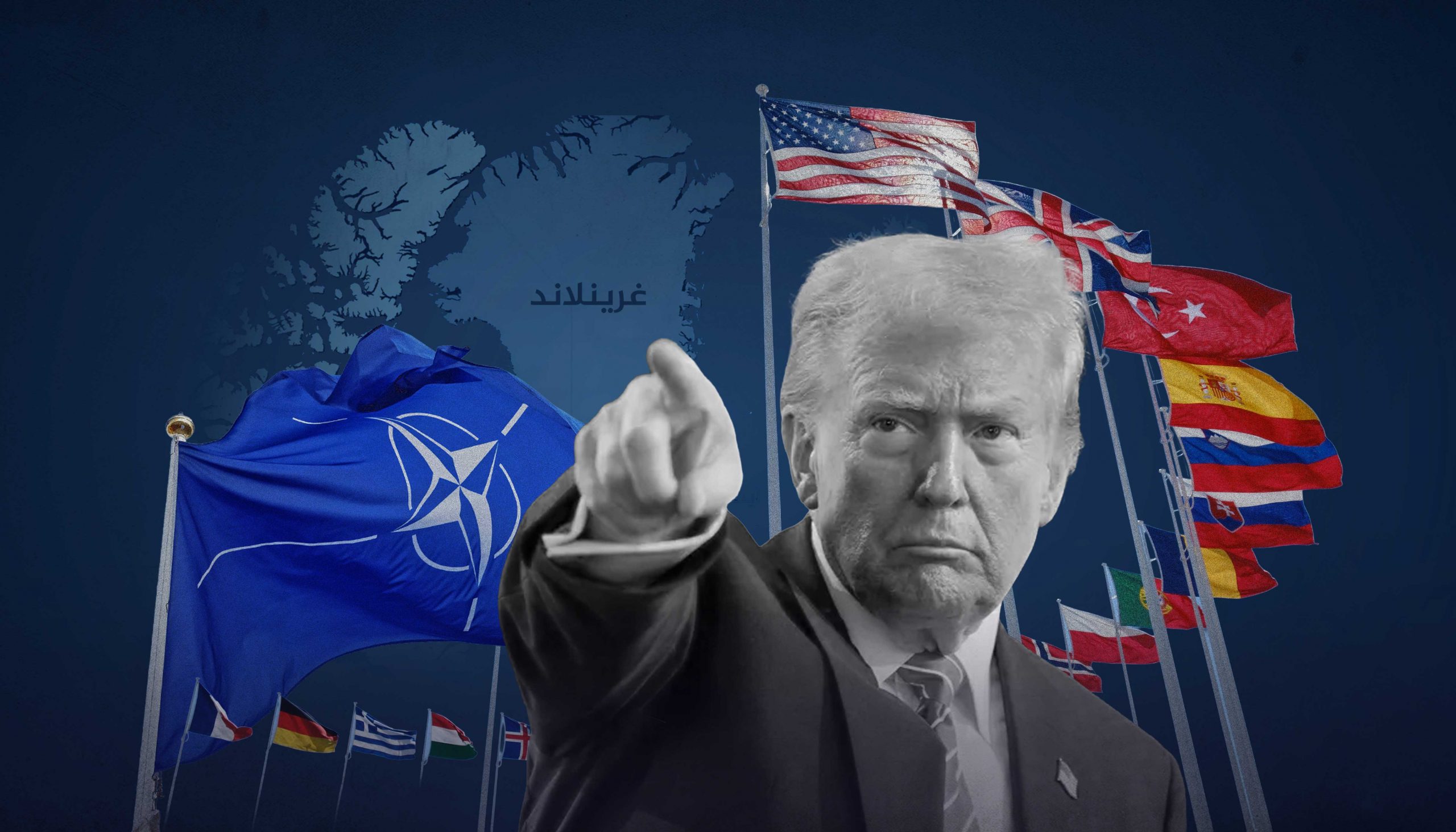Introduction
In July 2022, the Chief of Staff of Benin’s Armed Forces (Forces Armées Béninoises), General Fructueux Gbaguidi, paid an official visit to Kigali, the capital of Rwanda. His visit came on the heels of increasing terrorist attacks in Benin’s northern regions bordering Burkina Faso, Niger, and Nigeria. The General was tasked with requesting Rwanda’s logistical support and expertise in countering Islamist insurgencies. By late summer, an agreement opened the door for an initial deployment of 350 military personnel from the Rwanda Defence Force (RDF) to Benin.[1] This would mark the first mission to West Africa for the RDF, which is already involved in counter-insurgency efforts in the Central African Republic (CAR) and Mozambique. The fact that Benin turned to Rwanda rather than the Economic Community of West African States (ECOWAS), a regional political and economic union of 15 states including Benin, was telling.
Since late 2021, Benin, considered one of the most stable countries in West Africa, has been the target of multiple attacks by armed groups.[2] Several Islamist militant groups have found refuge in the Beninese forests bordering neighboring Burkina Faso and Niger. Here, besides finding a natural shelter in areas that are difficult to monitor by security forces, jihadist groups reportedly found a socio-economic environment suited to their entrenchment in the region. Although the spillover effects of terrorist activities in Benin are still limited, their intertwining with patterns of structural instability is likely to allow them to thrive and increase their scope of attacks toward the country’s heavily populated south. In other words, the mounting fear of the Beninese leaders is that the activities of transnational Islamist movements active in the Sahel are infecting their country by exploiting its many national parks in the north. Consequently, with the growing threat of terrorism, Benin, like other West African coastal countries such as Côte d’Ivoire and Togo, has embarked on strategies to counter it. While the involvement of Rwandan troops confirms the role that Kigali has acquired within the broader, continental African security architecture, it also highlights the growing concern of West African countries about the tendency of Sahelian jihadist groups to expand southward toward the Gulf of Guinea.
Benin’s looming threat
In February 2022, a ranger patrol – one of many deployed in Benin’s northern regions to combat poaching – was ambushed in the heart of W National Park, one of West Africa’s huge wildlife parks. The terrorists subsequently detonated a series of crude devices as rescue patrols arrived to help the wounded. This was the worst in a series of cross-border assaults in northern Benin that began in late 2021.
The attackers, reportedly linked to the jihadist group Ansaroul Islam (AI), entered Benin from neighboring Burkina Faso. The group has ideological and organizational traits that bring it closer to al-Qaeda than to the Islamic State.[3] Over the past few years, the jihadist group has been operating within the W-Arli-Pendjari Complex (WAP), which spans three countries – Benin, Burkina Faso, and Niger – and includes several wildlife reserves and two large national parks. W National Park happens to sit at the junction of all three countries, with Pendjari and Arli National Parks spanning the Benin-Burkina Faso border. The counter-jihadist operation known as Operation Barkhane, launched in 2014 by France in cooperation with other European partners and the G5 Sahel,[4] pushed several terrorist groups farther south. This has turned the WAP Complex into something of a natural sanctuary for militias. These include the al-Qaeda-affiliated Jamaat Nusrat al Islam wa al Muslimin (JNIM) and Islamic State in the Greater Sahara (IS-GS), both of which have set up bases of operation in the region’s forests, particularly in Burkina Faso.[5]
While the terrorists operating in northern Benin have not yet been fully identified, evidence points to ties with certain groups operating in neighboring Burkina Faso. These include the Islamic State in the Greater Sahara (IS-GS), the Macina Liberation Front (FLM) – a faction of the broader JNIM coalition – and the aforementioned AI group. AI seems the most plausible perpetrator for the steady spate of attacks in Benin. Originally from Burkina Faso’s northern province, it has been the primary source of destabilization along the porous border with Mali for several years. However, AI went through a phase of decline that, on the one hand, drastically reduced the number of attacks and, on the other hand, sparked a structural overhaul of the movement and a shift to Burkina Faso’s south.[6] AI’s geographic shift stemmed from Operation Barkhane and the pressure applied, since 2018, by Burkinabé security forces in cooperation with some units of the French army. In addition, increased competition with other violent Islamist non-state armed actors led AI to move south. They have found a particularly suitable area – relatively free from competition – along Benin’s northern border regions.[7]
Jihadist groups and domestic instability
In Benin, AI attacks were initially directed against civilian targets among the local communities. More recently, AI has seemed to favor a more cooperative approach to its relations with locals. For instance, mutually supportive relationships with organized crime groups, poachers, and pastoralists have reportedly been established.[8] AI and other smaller jihadist groups are also strengthening their ties with poachers in the region’s vast national parks. The poachers’ knowledge of the area allows AI militants to find shelter more easily in the dense forests. This, in turn, makes the job of Beninese security forces more difficult. Local pastoral communities are also linked with AI. These herder communities, at times, support the group by providing safety and shelter, but are also an essential source of recruitment. Tensions between pastoralists and farmers have boiled over, as they have in next-door Nigeria, as farmers have occupied land formerly dedicated to grazing.[9]
On top of these developments, there is a palpable and growing mistrust of state authorities among northern Benin communities, who see them as outsiders, biased, and unable to resolve community disputes fairly. Groups like AI have therefore found particularly fertile ground for recruitment among the mostly Muslim herder communities like the ethnic Fulani. Some Fulani have made deals with jihadists in order to be able to graze their cattle in protected areas such as national parks.
This bodes poorly for Benin as similar dynamics were witnessed in Mali nearly a decade ago. In hindsight, Malian authorities were unprepared to address and settle local disputes fairly and transparently, thereby increasing herders’ resentment. The distrust of government authorities prompted many to join radical Islamist movements, such as the FLM, triggering a dynamic of violence that subsequently drove the escalation of the conflict with Malian farmers and security forces. In other words, Beninese authorities now have an entirely plausible concern that groups like AI will side with the herders against farmers, generating a wave of widespread violence and instability.
Benin’s evolving counter-insurgency strategy
The Beninese strategy to counter increasing attacks and instability in the country’s north has evolved quickly. At first, it involved strengthening its defense capabilities and engaging external state and non-state actors. In April 2022, for instance, Benin’s Defense Ministry designated the National Guard as an elite body to carry out counter-insurgency and counter-terrorism operations to overcome Benin’s lack of special forces. Officials in Benin’s capital, Cotonou, then launched a plan to recruit and strengthen the National Guard personnel five-fold – most of whom are currently elite parachute commandos and marine fusiliers – under the authority of Colonel Codjo François Amoussou and his deputy Colonel Faizou Gomina.[10] However, it will take several months for the plan to become fully operational and for the country’s security apparatus to enjoy a significant increase in manpower and capabilities.
Beninese authorities have simultaneously looked to involve external actors in its fight against AI. In February 2022, following several terrorist attacks, Benin broadened and strengthened its security cooperation with France. The French Air Force subsequently launched a series of airstrikes over the border area with Burkina Faso, reportedly neutralizing several members of armed terrorist groups.[11] There has also been an increase in cooperation between Western intelligence services, primarily the French, with relevant Beninese military counterparts.
French and Beninese counter-terrorism efforts have been coordinated on the ground with a private monitoring group, African Parks, a Johannesburg-based nongovernmental organization committed to environmental protection and conservation.[12] African Parks signed an agreement with Benin’s government in 2020 to take over the management and patrol of the two major national parks, W Park and the neighboring Pendjari Park. However, the group is more than just an environmental organization and has displayed traits that make it more akin to a private military company. One hundred and fifty rangers belonging to African Parks are deployed throughout Beninese territory.[13] All of them have received paramilitary and counter-terrorism training. African Parks also enjoys great autonomy in its operations. For example, the agreement allows the host country, Benin, to retain influence and decision-making power in the overall management plan of operations, but not in the daily operations on the ground.[14] Nevertheless, African Parks has been unable to quell the attacks in Benin, which have increased in intensity and duration over the past year. This prompted Cotonou to call Kigali and invite Rwanda’s fighting force to West Africa for the first time.
Rwanda’s military deployment
Rwandan forces may enter Benin by October or November 2022. They will be deployed as a support force alongside the Forces Armées Béninoises as well as the National Guard. Besides the launch of a series of training programs targeting the Beninese forces, the agreement with Kigali also provides for the deployment of Rwandan contingents on the ground. While the agreement between Kigali and Cotonou envisages so-called combat “monitoring” activities, the RDF’s mission remains unclear. At first, the Rwandan forces are unlikely to conduct operations autonomously – as they currently do in Mozambique.[15]
The fact that Rwandan forces are being deployed to West Africa for the first time is groundbreaking and fraught with consequences. The deployment of soldiers from a geographically distant, non-ECOWAS country is likely to come as a surprise for other West African states. Cotonou, understanding the potential political fallout of such a move, promptly informed Togo about the worsening security situation in Mali during a meeting held in Togo’s capital, Lomé, in early September.[16] As of late July and during his visit to Togo, France’s president, Emmanuel Macron, was notified by President Patrice Talon of the likely RDF deployment. In addition, Kigali also notified Paris of the plans being hatched with Cotonou.[17]
Question marks hang over who will pay for Rwanda’s involvement in Benin and how many more such missions Rwanda can undertake. Rwanda’s military force is comprised of only 35,000 soldiers. It is a resource-poor, landlocked country. While the European Union recently approved €20m to support the RDF operations in Mozambique,[18] funding for Rwandan troops in Benin is less certain and, if approved, will certainly take time. France is reported to be paying some of the RDF’s bills, either directly to Kigali or through state aid organizations.[19] Though there is some logic to this, and France has voiced its willingness to do so,[20] it remains unsubstantiated. What is certain is that the RDF’s relative successes against terrorists in both CAR and Mozambique, to date, have led to major inroads for Rwandan businesses, many of which have strong, substantiated ties to both the RDF and Kagame’s ruling political party, the Rwandan Patriotic Front (RPF).[21]
It would come as little surprise if Paris viewed the deployment of RDF troops to Benin positively. French strategy – after its withdrawal from Mali – points to Paris’ increasing reliance on “reliable” African security partners such as Rwanda. French policymakers also fear a Wagner Group-like contagion affect, i.e., Beninese authorities would, like Mali and CAR before them, turn to Russia and its private military contractors like Wagner. As such, the RDF, which has shown its mettle in both CAR and Mozambique, is increasingly viewed by Paris as the go-to African security provider.[22] Paris can avoid deploying its own forces to Sub-Saharan Africa and sideline the Kremlin via Kigali’s willingness to use its potent RDF. In turn, Rwanda’s president, Paul Kagame, can take the risk as well as the potential rewards of counter-insurgency and counter-terrorism efforts on the continent. This dovetails nicely with Kagame’s and the RPF’s interest in projecting a positive, post-genocide image of Rwanda as a responsible and potentially powerful force for peace and security in Sub-Saharan Africa.
The RDF’s achievements in CAR as well as Mozambique, to date, have done much to reinforce outside perceptions of Rwanda and its armed forces as a reliable provider of security in hotspots stretching from the Indian to the Atlantic coasts of Africa.[23] Kagame now presents Rwanda as a sort of African solution, a police officer, who can intervene independently at the behest of a host state’s leader. It is still early days yet, however, and Benin represents a third test case for the RDF in an entirely different part of the continent and a completely new environment and area of operations. Only time will tell what successes the RDF may have, what rewards Benin will offer, and how long Rwanda’s soldiers will stay in West Africa.
References
[1] “Benin, Rwanda Militaries Hold Bilateral Talks to Bolster Security,” Africa News, October 9, 2022, http://bitly.ws/uQPf.
[2] Konrad Adenauer Stiftung, North of the Countries of the Gulf of Guinea: The New Frontier for Jihadist Groups? (Berlin: Konrad Adenauer Stiftung, 2021), http://bitly.ws/uQNL.
[3] Michael M Phillips, “Militants Are Edging South Toward West Africa’s Most Stable and Prosperous States,” The Wall Street Journal, March 2, 2022, http://bitly.ws/uQNV.
[4] G5 Sahel, or G5S, is an institutional framework for coordination of regional cooperation in development policies and security matters in west Africa and includes five Sahel countries: Burkina Faso, Chad, Mali, Mauritania, and Niger.
[5] Christophe Châtelot, “Le Bénin confronté à l’extension de la menace djihadiste sahélienne,” Le Monde, February 12, 2022, http://bitly.ws/uQPb.
[6] Pauline Le Roux, “Ansaroul Islam: The Rise and Decline of a Militant Islamist Group in the Sahel,” Africa Center for Strategic Studies, July 29, 2019, http://bitly.ws/uQPh.
[7] For more on competition from terrorist groups and their resorting to cross-border attacks, see Brendon J Cannon and Wisdom Iyekekpolo, “Explaining Transborder Terrorist Attacks: The Cases of Boko Haram and Al-Shabaab,” African Security 11, no. 4 (2018): 370-396, https://doi.org/10.1080/19392206.2018.1560970.
[8] Unstructured networks smuggling licit and illicit goods along the country’s borders is considered “organized crime.” See Konrad Adenauer Stiftung, North of the Countries of the Gulf of Guinea: The New Frontier for Jihadist Groups? (Berlin: Konrad Adenauer Stiftung, 2021), http://bitly.ws/uQNL.
[9] Leif Brottem, “The Growing Complexity of Farmer-Herder Conflict in West and Central Africa,” Africa Security Brief n. 39, Africa Center for Strategic Studies, July 12, 2021, http://bitly.ws/uQPM.
[10] “Rwanda Firms Up Its Plans for Military Support,” Africa Intelligence, September 23, 2022, http://bitly.ws/uQPW.
[11] “Deadly Attacks on Benin’s Northern Border Raise Fears of Jihadist Intrusion,” Radio France Internationale, February 11, 2022, http://bitly.ws/uQQb.
[12] Jean-Christophe Servant, “Who Is the Land for?” Le Monde Diplomatique, February 2020, http://bitly.ws/uQQk.
[13] Helping the South African group patrol the park is a standing force of more than 1,000 rangers, reportedly trained by military instructors from the United Kingdom, Israel, and France. See Kars De Bruijne, “Laws of Attraction: Northern Benin and Risk of Violent Extremist Spillover,” CRU Report (Hague: The Clingendael Institute, 2021), http://bitly.ws/uQQB.
[14] Aaron Ross, “Park Rangers Enter Fray in West Africa’s Battle with Militants,” Reuters, April 26, 2022, http://bitly.ws/uQQH.
[15] Federico Donelli, “Rwanda’s Military Diplomacy: Kigali’s Political Use of the Military Means to Increase Prestige and Influence in Africa and Beyond,” IFRI, April 7, 2022, http://bitly.ws/uQQQ.
[16] “Rwanda Firms Up Its Plans for Military Support,” Africa Intelligence, September 23, 2022, http://bitly.ws/uQPW.
[17] Ibid.
[18] “EU to Grant 20 Million Euros to Support Rwandan Military Mission in Mozambique,” Club of Mozambique, September 12, 2022, http://bitly.ws/uQR6.
[19] David Himbara, “Kagame’ Top Priority in Mozambique Was to Secure French Energy Giant Total’s US$20 Billion Liquefied Natural Gas Facilities. Mission Accomplished. Who Pays the Bill?” Medium, August 10, 2021, http://bitly.ws/uQRd.
[20] “EU Set to Finance Deployment of Rwandan Army in Cabo Delgado,” Africa Intelligence, November 8, 2021, http://bitly.ws/uQRm.
[21] Brendon J. Cannon and Federico Donelli, “Rwanda’s Military Deployments in Sub-Saharan Africa: A Neoclassical Realist Account,” The International Spectator (forthcoming).
[22] Federico Donelli, “Rwanda’s Unilateral Interventionism in African Conflicts: Determinants and Implications,” Trends Research & Advisory, December 15, 2021, http://bitly.ws/uQRx.
[23] For a recent, comprehensive analysis of the factors and effects of Rwanda’s unilateral military deployments, see Brendon J. Cannon and Federico Donelli, “Rwanda’s Military Deployments in Sub-Saharan Africa: A Neoclassical Realist Account,” The International Spectator (forthcoming).








